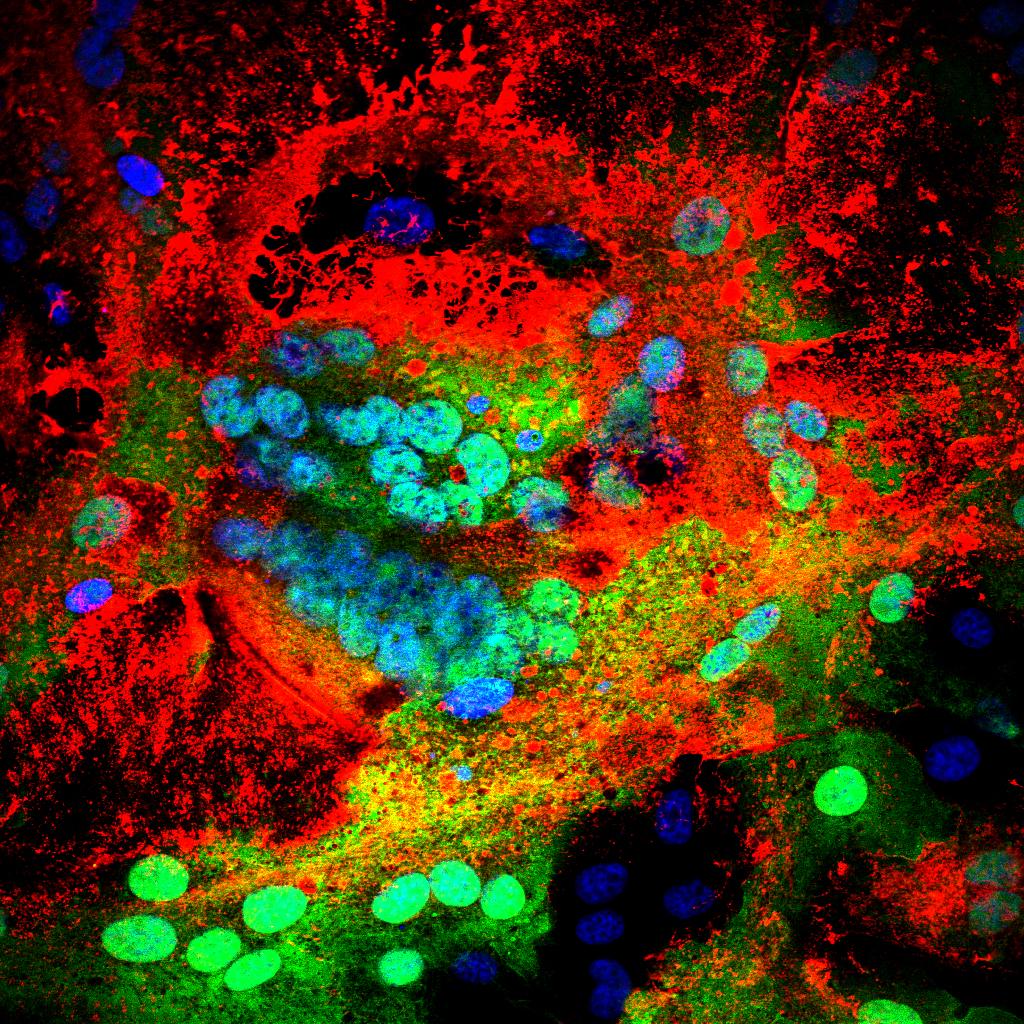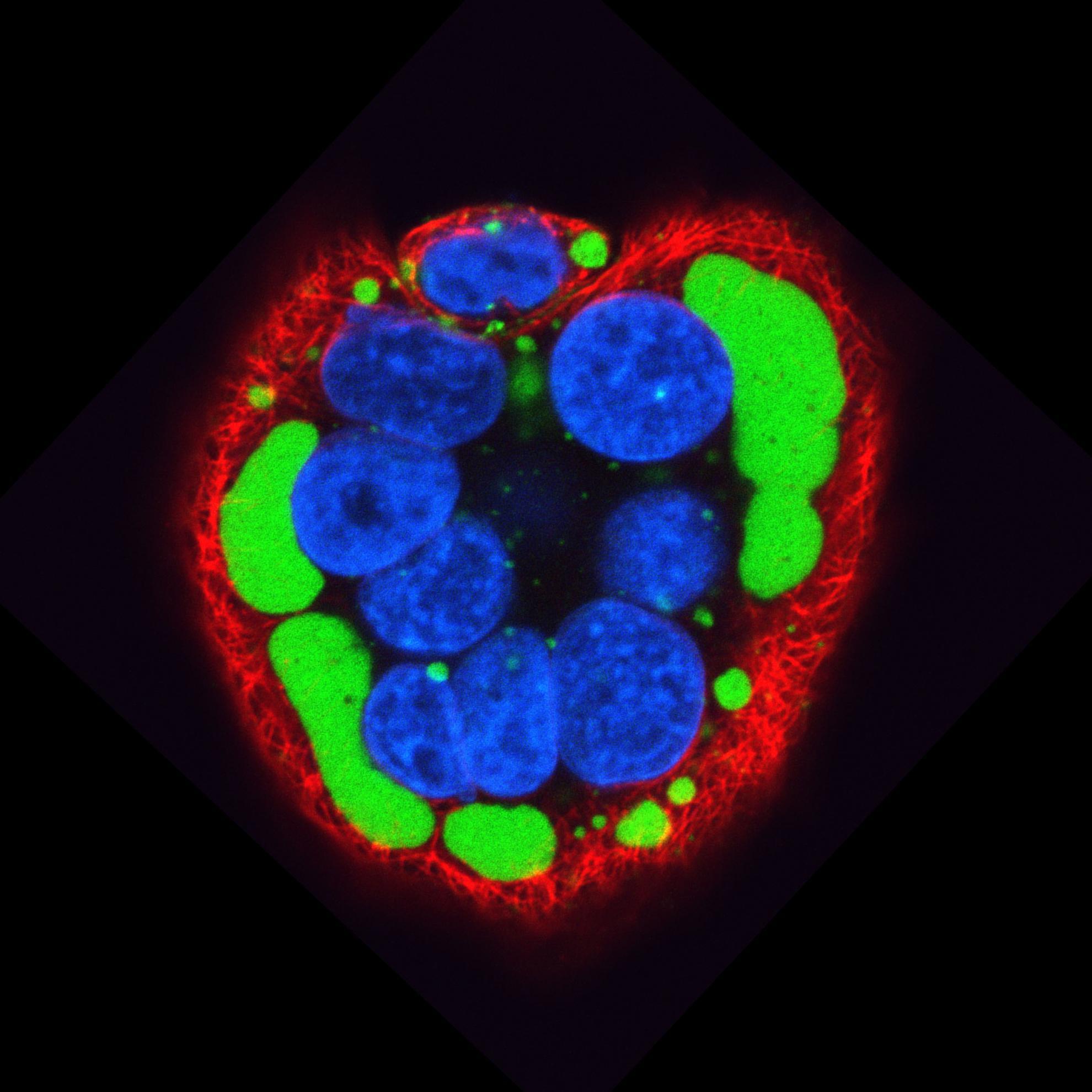Enhanced immunosurveillance for animal morbilliviruses using vesicular stomatitis virus (VSV) pseudotypes
The measurement of virus-specific neutralising antibodies represents the gold-standard for diagnostic serology. For animal morbilliviruses, such as peste des petits ruminants (PPRV) or rinderpest virus (RPV), live virus-based neutralisation tests require high-level biocontainment to prevent the accidental escape of the infectious agents. In this study, we describe the adaptation of a replication-defective vesicular stomatitis virus (VSV?G) based pseudotyping system for the measurement of neutralising antibodies against animal morbilliviruses. By expressing the haemagglutinin (H) and fusion (F) proteins of PPRV on VSV?G pseudotypes bearing a luciferase marker gene, neutralising antibody titres could be measured rapidly and with high sensitivity. Serological responses against the four distinct lineages of PPRV could be measured simultaneously and cross-neutralising responses against other morbilliviruses compared. Using this approach, we observed that titres of neutralising antibodies induced by vaccination with live attenuated PPRV were lower than those induced by wild type virus infection and the level of cross-lineage neutralisation varied between vaccinates. By comparing neutralising responses from animals infected with either PPRV or RPV, we found that responses were highest against the homologous virus, indicating that retrospective analyses of serum samples could be used to confirm the nature of the original pathogen to which an animal had been exposed. Accordingly, when screening sera from domestic livestock and wild ruminants in Tanzania, we detected evidence of cross-species infection with PPRV, canine distemper virus (CDV) and a RPV-related bovine morbillivirus, suggesting that exposure to animal morbilliviruses may be more widespread than indicated previously using existing diagnostic techniques.

